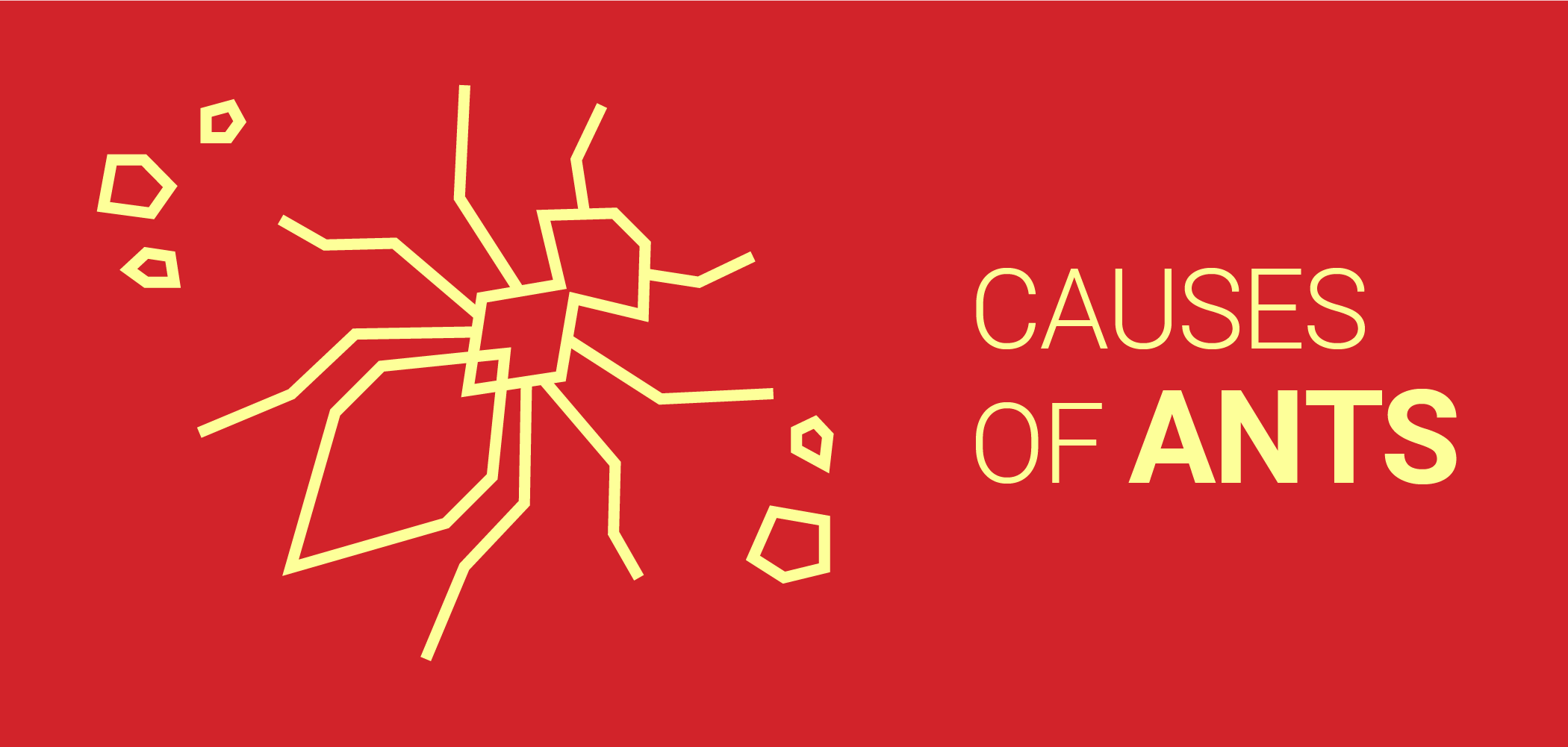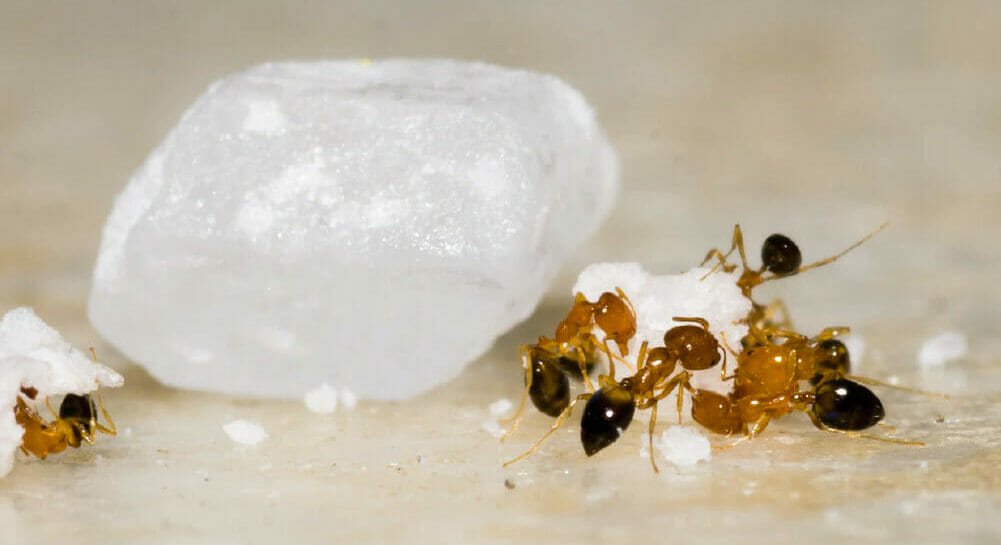Why Are There Ants In My House?
Ant problems start outside the home. Many ants are attracted to sources of standing water and easily accessible food sources, like trash cans and other forms of debris. If your yard is messy, it may be a prime target for an ant colony to grow. As ant colonies grow, they usually need to start foraging for more food sources. This is usually when ants will venture inside to search of food, much to the dismay of homeowners.
Since they are so small and can fit through even the tiniest spaces and cracks, they can enter homes through pipes, gaps in walls, holes in doors, windows, and screens, and crevices in brick and wood alike. They are attracted to food waste, decay, moisture, and unsealed leftovers, so if they find discarded or poorly stored food or sources of excess moisture like drippy faucets or leaky pipes, you’re far more likely to find them in your home.
During an ant invasion, you’ll usually notice dozens of ants crawling on countertops and other surface areas where food is commonly placed. You may also notice them looking for water in your bathroom or kitchen sink. As ants settle in, they leave behind scent trails to mark paths to food sources which is why you’ll sometimes see them following one another in uniform lines. If you start to notice these kinds of behaviors, you should contact a pest control company.




